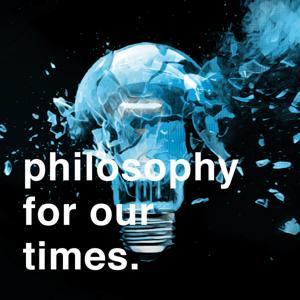In this episode, John welcomes Mark Vernon to discuss his two books, 'Dante's Divine Comedy: A Guide for the Spiritual Journey' and 'Awake: William Blake and the Imagination'. They explore the profound psychological, philosophical, and spiritual insights offered by Dante and Blake, touching upon topics like pilgrimage, the imaginal, and the role of the imagination in renewing perception. Mark shares his experiences and how these works resonate with contemporary cognitive science and spirituality. The conversation delves deep into understanding the connections between ancient wisdom and modern thought.
Mark Vernon is a writer, psychotherapist, and philosopher whose work explores the meeting point of spirituality, psychology, and philosophy. Based in London, his background in physics, theology, and psychotherapy shapes a multidisciplinary approach that bridges ancient wisdom traditions with contemporary understandings of the mind and meaning.
🔗 Learn more about Mark Vernon's work: markvernon.com
Instagram
Linkedin
Awake: William Blake and the Power of Imagination — by Mark Vernon
The Divine Comedy — by Dante Alighieri
A World in a Grain of Sand — William Blake's poem reference ("Auguries of Innocence")
—
00:00 Welcome to the Lectern
01:00 Discussing Dante's Divine Comedy
02:30 Exploring William Blake's work
04:00 Mark Vernon's background and inspirations
07:00 The philosophy and impact of pilgrimage
10:00 Dante's pilgrimage and personal experiences
19:00 The nature of Dante's poem
24:30 Addressing controversial topics in Dante's work
31:00 The in-between and the imaginal
33:30 Triston's predictive processing
35:00 The brain's predictive nature
35:30 Deep learning and pattern recognition
36:00 Metacognition and future self
38:30 Blake's visionary experiences
39:00 The power of imagination
41:02 41:02 "We don't hear sound waves — we hear meaning. That's how strong the imaginal is."
56:00 Confident imagination and fierce critique
—
The Vervaeke Foundation is committed to advancing the scientific pursuit of wisdom and creating a significant impact on the world. Become a part of our mission.
Join Awaken to Meaning to explore practices that enhance your virtues and foster deeper connections with reality and relationships.
—
Ideas, People, and Works Mentioned in this Episode
Pilgrimage as a Path of Transformation
The Divine Comedy as a Map of the Soul
Knowledge Through Transformation, Not Proposition
The In-Between and the Imaginal Realm
Cleansing the Doors of Perception
The Renewal of the Senses
Theoria as Pilgrimage and Contemplation
Innocence, Openness, and Inner Vision
The Descent as a Hidden Ascent
William Desmond – Philosopher of the Between
Charles Taylor – A Secular Age
Henri Corbin – The Imaginal vs. The Imaginary
Ibn 'Arabi – Sufi Visionary of the Heart
Plato – Theoria and the Methu Aixis
C.G. Jung – Synchronicity and the Soul's Descent
Seeing God Again for the First Time – John Vervaeke
The Bhagavad Gita, Chapter 12 – The Faces of God
The Philosophical Silk Road and Pilgrimage as Practice
The Camino de Santiago and Shikoku Pilgrimage
The Covenant of Return – Integration and Homecoming
Threshold and Passage as Spiritual Acts
The Face of the World and the Call to Change Your Life
—
Follow John Vervaeke: Website | Twitter | YouTube | Patreon
—
Thank you for watching!



























